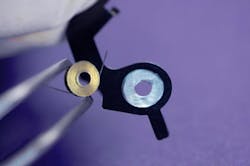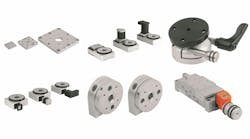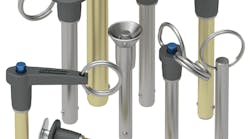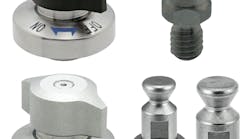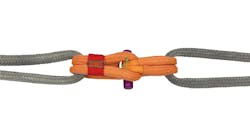EP77M-FMed Fast Curing, Silver Filled Epoxy
Master Bond EP77M-FMed is a two-part epoxy adhesive and sealant designed for use in the assembly of medical devices. It meets the ISO 10993-5 requirements and is not considered to have a cytotoxic effect.
As a silver-filled system, EP77M-FMed provides excellent electrical conductivity, with a low volume resistivity of 10-3 ohm-cm. It provides a thermal conductivity of 1.44-1.73 W/(mK), resists thermal cycling, and has a Shore D hardness of 40-50 at room temperature. It can withstand exposure to water, liquid sterilants, anti-microbial disinfectants, and EtO sterilization. It offers a tensile strength of 2,000-3,000 psi and a tensile modulus of 250,000-300,000 psi at 75°F. This system is serviceable over the temperature range of -100°F to +250°F.
EP77M-FMed has an easy-to-use, one-to-one mix ratio by weight or volume and is a fast setting, especially when compared to other silver-filled systems. It sets up in 15-20 minutes at 75°F and fully cures at room temperature in 24 hours. This compound has a flowable paste-like consistency and bonds well to a variety of substrates including metals, glass, ceramics, rubbers, and many plastics. It is packaged in 20 gram, 50 gram, 100 gram, one pound, and multiple pound cans. The color of Parts A and B is silver. EP77M-FMed does not contain any solvents and is RoHS compliant.
Master Bond EP77M-FMed is a two-component epoxy that passes ISO 10993-5 specifications for cytotoxicity. Typically, medical-grade adhesives, sealants, coatings, and potting/encapsulation compounds need to be non-cytotoxic and show compatibility with blood and body fluids.
- Exceptionally low volume resistivity
- Convenient one to one mix ratio
- Fast fixture time at room temperature
- Passes ISO 10993-5
- Contains no solvents or diluents
- Easy application: contact pressure only required for cure; adhesive spreads evenly and smoothly
- Exceptionally fast room temperature cure
- Superior toughness and ability to withstand thermal cycling
